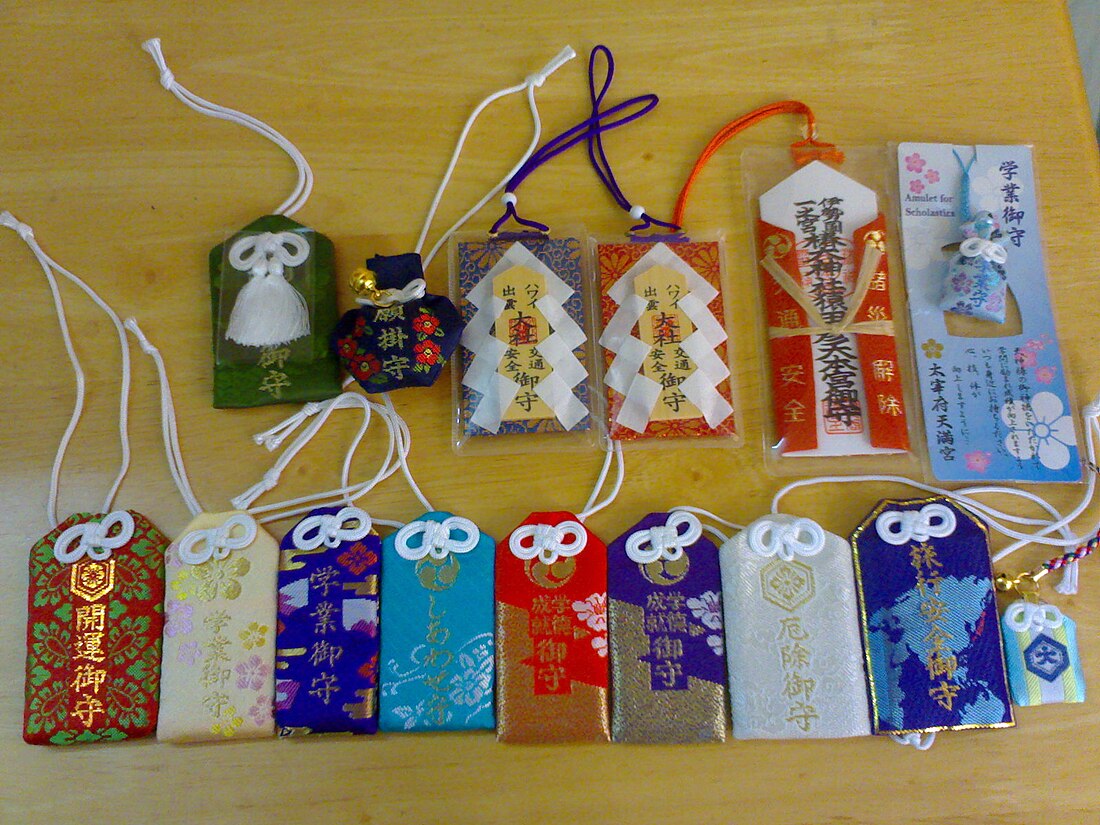Omamori
Japanese Shinto and Buddhist amulet From Wikipedia, the free encyclopedia
Remove ads
Omamori (御守 or お守り, omamori) are Japanese amulets (charms, talismans). They are commonly sold at shrines. Omamori are dedicated to particular Shinto deities as well as Buddhist figures. They are believed to protects a wearer from bad luck and brings good luck.[1] They were riginally made from paper or wood. Modern amulets are small items usually kept inside a brocade bag and may contain a prayer or religious inscription.[2]

Various omamori from different shrines
Remove ads
Types
There are many types of Omamori.[3]
- kōtsū-anzen: traffic safety. Protection for drivers and travelers
- yaku-yoke: avoidance of evil
- kaiun: open luck, better fortune
- gakugyō-jōju: education and passing examinations. For students and scholars
- shōbai-hanjō: prosperity in business. Success in business and matters of money
- en-musubi: finding a mate and marriage. Available for singles and couples to ensure love and marriage
- anzan: protection for pregnant women for a healthy pregnancy and easy birth
- kanai-anzen: safety (well-being) of one's family; peace and prosperity in the household
- katsumori: success. For winning or succeeding in something you've been hoping for.
- shiawase: happiness. Helps bring happiness and well-being into your life.
- kenkō: good health. For maintaining general health and well-being.
- byōki-heyu: recovery from illness. For those who are sick or recovering, to help them get well soon.
Remove ads
References
Other websites
Wikiwand - on
Seamless Wikipedia browsing. On steroids.
Remove ads
